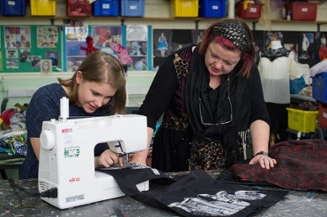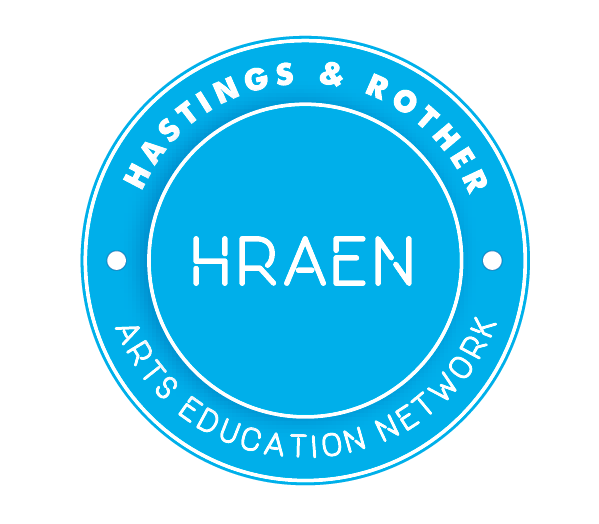|
Author: Catherine Sercombe Date: 28 Aug 2018 The latest statistics on the number of teenagers pursuing an Arts based education have raised concerns about potential knock-on effects this might have on the creative industries. This is not a new conversation, and a position that is unlikely to change for schools in England soon – as reflected in the latest A Level and GCSE data. How do we ensure that young people who want to seek employment in the creative industries, or want to pursue arts based courses at higher education, have the skills and experience to do so? Looking beyond the classroom In lieu of classroom based opportunities to engage in the arts, one solution may be to look for ways to get involved in the creative fields outside of curriculum time. There are many opportunities beyond school in which young people can access quality arts provision, develop their arts skills and deliver their own creative projects for real audiences. Arts Council England, supported by regional Bridge organisations, are paving the way with local cultural education partnerships, when it comes to offering coordinated arts and cultural experiences to all young people. The arts and cultural sector; made up of museums, art galleries, theatres, libraries, music education hubs among many other organisations, has a plethora of offers available for young people and is making good steps to ensure these opportunities are easily accessible. At Trinity College London, we talk directly to young people about their experience of completing an Arts Award. This is particularly the case for those undertaking Gold Arts Award, as we know that the experience of working or participating in training in the arts sector and delivering an arts project, has a huge impact on the participants. We not only witness a development in their personal skills but the platform also provides real life experiences to really demonstrate how they have put their skills into action when progressing to higher education or jobs. This type of experience is hugely important in a young person’s development, as we know that employers and higher education institutions expect young people to have applied their skills in a practical situation and not only being able to talk about the theory behind them. Making it easier to deliver Gold There is drive amongst the Arts Award community nationally to support more young people to access Gold Arts Award. This can be alongside their existing studies or through opportunities beyond the curriculum. The award challenges young people to lead, set personal challenges, solve problems, manage others (including their peers) and take greater responsibility for their own learning and development. It is an experience that will benefit them in any part of their life. For our part, we have made it even easier for young people to take part in Gold. Anyone that works with young people can now access Gold adviser training as a standalone session without having to train at the other levels. This training is open for bookings, with sessions taking place from September onwards. Find out more at www.artsaward.org.uk/training. If you value young people and want to provide them with access to great arts experiences and help them develop skills required to progress to higher education or the world of work then delivering Gold could be the route for you. But don’t take our word for it! Find out what young people say and the doors it has opened for them over at Arts Award Voice. In my previous blogs, I’ve talked about the value arts based qualifications provide when it comes to developing employability skills and ensure future success in the working world. The arts can be used as vehicles for young people to be active citizens, creating a sense of community in turn. Quality arts and cultural experiences can be as rewarding (as they are challenging), but ultimately the arts provide opportunities to inspire young people to think creatively, to take risks and try something new. Even if they fail, these pathways will often give students a chance to try again, developing a whole repertoire of skills, abilities and confidence they didn’t even know they had! We have a responsibility to young people to ensure they have access to as many opportunities at local level as is feasibly possible. However, when schools are unable to dedicate resource to the arts; the creative industries and youth sectors have a responsibility to ensure that we provide opportunities to upskill young people for their chosen careers. At the very least, we should be looking to provide the skills and experiences that develop them as future leaders.
0 Comments
Leave a Reply. |
These updates are provided by the HRAEN steering group and comprise information we feel will be most useful to the HRAEN members. Please note that though we want to spread the word about creative activity much of what appears here has not been quality checked by HRAEN and consequently HRAEN does not systematically endorse the projects on this page.
Archives
May 2022
CATEGORIES
All Arts Award Arts Champions Arts Council England Artswork CPD Creative Teaching Culture Shift Dear Serge De La Warr Pavilion East Sussex Arts Award Film Education Fun Palaces Hastings Borough Council Hastings Museum & Art Gallery Hastings Pier HRAEN Jerwood Gallery Pallant House Gallery Rother District Council Screen South South East Bridge The Pier HUB White Rock Theatre |


 RSS Feed
RSS Feed